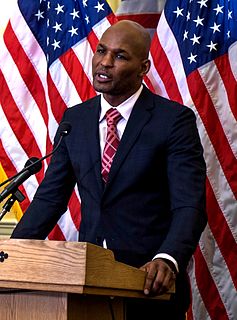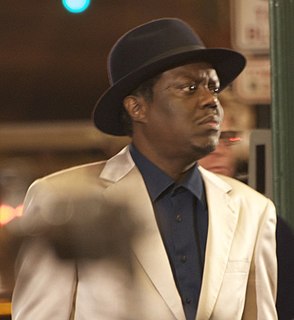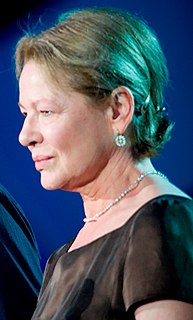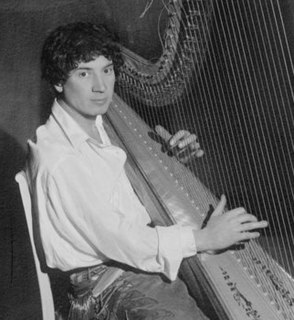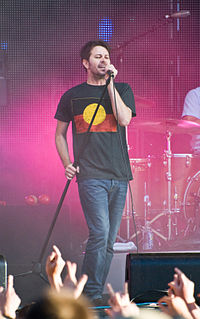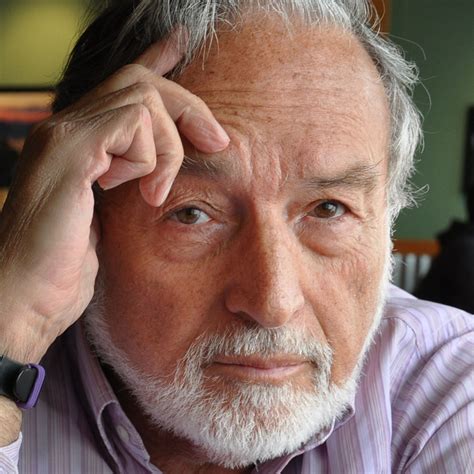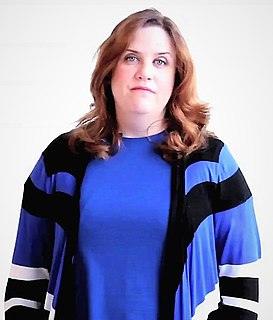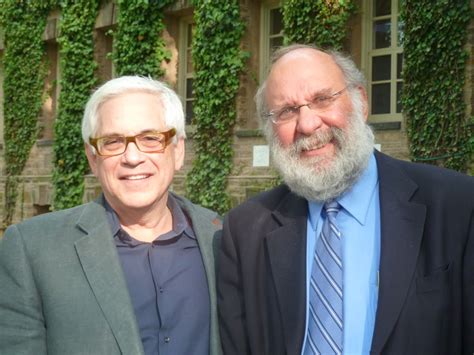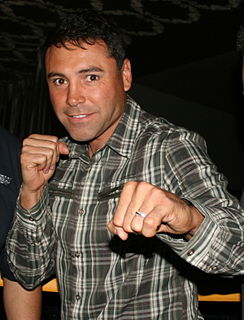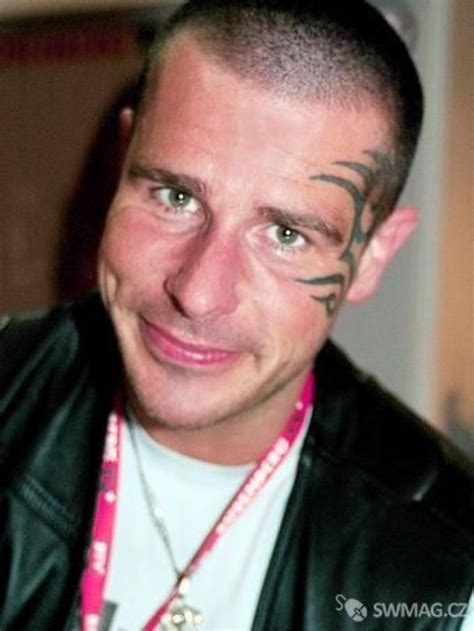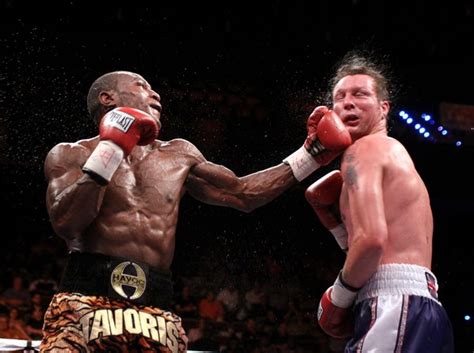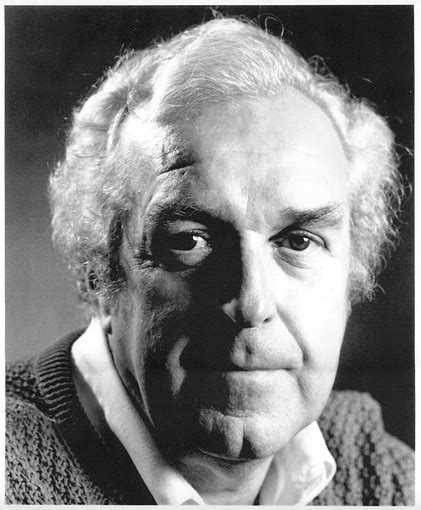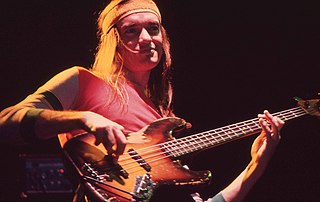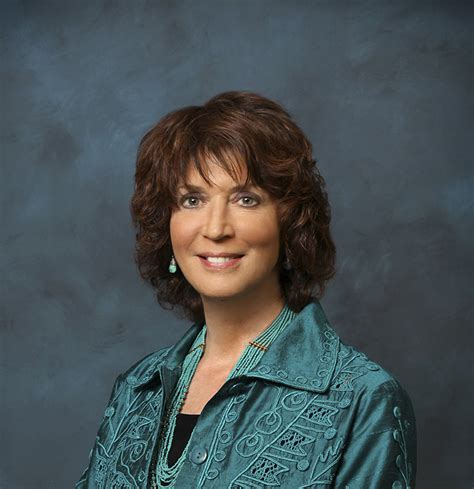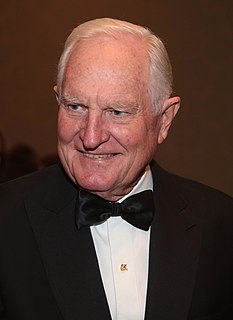Top 245 Bernard Shaw Quotes & Sayings - Page 4
Explore popular Bernard Shaw quotes.
Last updated on November 17, 2024.
People try so hard to believe in leaders now, pitifully hard. But we no sooner get a popular reformer or politician or soldier or writer or philosopher -- a Roosevelt, a Tolstoi, a Wood, a Shaw, a Nietzsche, than the cross-currents of criticism wash him away. My Lord, no man can stand prominence these days. It's the surest path to obscurity. People get sick of hearing the same name over and over.
I became so disciplined when I was on tag. I would be at home by eight o'clock, and because I had boxing, I lived the disciplined life. I started reading because I learnt that so many champions educated themselves. Joe Louis, Mike Tyson, Bernard Hopkins. Before, it was 'act now, think later' - but the discipline and reading changed me.
We asked a lot of questions and we watched everyone who was working in the studio. And we had an opportunity to sit in on discussions, aesthetic discussions at the pottery, which took place generally over tea breaks in the morning and afternoon. So we learned a lot just from being around there [with Bernard Leach ].
After all, what is your personal identity? It is what you really are, your real self. None of us is what he thinks he is, or what other people think he is, still less what his passport says he is. And it is fortunate for most of us that we are mistaken. We do not generally know what is good for us. That is because, in St. Bernard's language, our true personality has been concealed under the 'disguise' of a false self, the ego, whom we tend to worship in place of God.
We were interviewing an author, and we started talking about how so many of them - Salinger, Shaw, Fitzgerald - were really an odd bunch. They put a barrier around themselves, and not many people got through it. This was the spark that I really latched onto - someone who could break through the barrier. Of course [FINDING FORRESTER] really began to take shape when I began to wonder, what if it was a young person?
We did respect [Bernard Leach], although we also were willing to challenge ideas and at least put forth our feelings about the way the pottery was run, about things that were done, about the pots we were making, etc. And we would get into sometimes some very fierce arguments. We'd be shouting at one another because of disagreements.
The leading, the most respected Vietnam historian, military historian Bernard Fall -he was a hawk incidentally, but he cared for the Vietnamese - he said it wasn't clear to him whether Vietnam could survive as a historical and cultural entity under the most massive attack that any region that size had ever suffered. He was talking about South Vietnam, incidentally.
Doubt is my boon companion, the faithful St. Bernard ever at my side. Whether writing essays or just going about daily life, I am constantly second-guessing myself. My mind is filled with 'yes, buts,' 'so whats?' and other skeptical rejoinders. I am forever monitoring myself for traces of folly, insensitivity, arrogance, false humility, cruelty, stupidity, immaturity and, guess what, I keep finding examples. Age has not made me wiser, except maybe in retrospect.
We [with Alix MacKenzie] had decided we needed further training, and certainly Leach was the one we turned to. So we went to England this summer and we took examples of our work along with us and showed them to Bernard Leach and told him what we were trying to do. And of course he took one look at our work and he said - very quickly he said, "I'm sorry, we're full up," and this was his way of politely saying, you just don't make the cut.
I do remember that when we left [Bernard Leach] after two and a half years, we went home on a boat again - this was before air travel became really easy - and Alix [MacKenzie] turned to me and she said, "You know, that was a great two years of training, but that's not the way we're going to run our pottery."
In searching for further training we turned to England and Bernard Leach. We thought since we had responded to his book so strongly that this would be the sort of training that we would like to have. We saved money, during the summer went to Europe, and the first stop was to go to England, visit the Leach Pottery and ask Leach if he would take us on as apprentices.
In fact, [Bernard Leach] was several generations removed from us. At that time we were there, I think Alix [MacKenzie] and I were 26 and 28, and Leach was about 63, and we thought he was a very old man. I used to always want to help him up the stairs in the house for fear he'd fall. Actually, he was in excellent condition and lived to be much, much older than we ever expected.
Many years ago a very wise man named Bernard Baruch took me aside and put his arm around my shoulder. "Harpo my boy," he said, "I'm going to give you three pieces of advice, three things you should always remember." My heart jumped and I glowed with expectation. I was going to hear the magic password to a rich, full life from the master himself. "Yes sir?" I said. And he told me the three things. I regret that I've forgotten what they were.
How shall I ever tell Aunt Shaw?' she whispered, after some time of delicious silence. 'Let me speak to her.' 'Oh, no! I owe it to her, - but what will she say?' 'I can guess. Her first exclamation will be, "That man!" ' 'Hush!' said Margaret, 'or I shall try and show you your mother's indignant tones as she says, "That woman!"
Hi, this is Bernard Fanning from Powderfinger. I'm in New York at the moment, and we've been walking around the city, it's pretty strange. I was walking along with Darren and Cogsy yesterday and we saw this guy playing cards, a little two up type swindle, and he ripped this guy off for like one hundred bucks in like, ten seconds, and the guy started complaining so he just packed up his shop and left! And it was the smoothest swindle any of us had ever seen. So that was probably the highlight of our trip here so far.
I would absolutely love to do a revival of 'Bury the Dead' by Irwin Shaw on Broadway, but it would have to be Joe Calarco's version that we did Off-Broadway at The Transport Group in 2008. It was just one of those amazing shows that didn't run long enough and not nearly enough people got a chance to see.
Will we allow the decline of our language-the language of Shakespeare, Shaw and Steinbeck? Will we abuse our precious gift of communication? Will we bite our mother tongue with the teeth of indifference, crushing the taste buds of clarity and, without prompt application of the antiseptic of education, causing the gangrene of strained metaphors? Stand up, America, and let me hear your answer: Ain't no way, dude!
People are certainly impressed by the aura of creative power which a writer may wear, but can easily demolish it with a few well-chosen questions. Bob Shaw has observed that the deadliest questions usually come as a pair: "Have you published anything?" - loosely translated as: I've never heard of you - and "What name do you write under?" - loosely translatable as: I've definitely never heard of you.
This is a major, wide-ranging, and comprehensive book. A philosophical investigation that is also a literary and historical study, Truth and Truthfulness asks how and why we have come to think of accuracy, sincerity, and authenticity as virtues. Bernard Williams' account of their emergence is as detailed and imaginative as his defense of their importance is spirited and provocative. Williams asks hard questions, and gives them straightforward and controversial answers. His book does not simply describe and advocate these virtues of truthfulness; it manifests them.
First of all, the people left, and they're now coming back. What we have to do is try and help them regain their lives, and the cause of the need for the immediate money is to establish some system of government. You must remember that Kosovo was never self-standing, and so we have to create that government structure, and that's, in fact, what Bernard Kushner is doing on behalf of the secretary-general.
I'm really happy to be working with CES Boxing, Gary Shaw Productions and Eye of the Tiger Management. It shows the direction in which Golden Boy Promotions is heading - in terms of bringing the best fights to the fans. It shows that Golden Boy Promotions is willing to work with anybody in order to satisfy the boxing fans.
He [Osama bin Laden] is clearly an odd combination of a 12th-century theologian and a 21st-century CEO. He runs an absolutely unique organization in the Islamic world. It's multiethnic, multilinguistic, multinational. He is a combat veteran, three times wounded. He has a huge reputation in the Islamic world for generosity and leadership. He's a man who speaks eloquent, almost poetic Arabic, according to Bernard Lewis.
There is no stability in this world. Who is to say what meaning there is in anything? Who is to foretell the flight of a word? It is a balloon that sails over tree-tops. To speak of knowledge is futile. All is experiment and adventure. We are forever mixing ourselves with unknown quantities. What is to come? I know not. But, as I put down my glass I remember; I am engaged to be married. I am to dine with my friends tonight. I am Bernard.
Now to sum it up,' said Bernard. 'Now to explain to you the meaning of my life. Since we do not know each other (though I met you once I think, on board a ship going to Africa), we can talk freely. The illusion is upon me that something adheres for a moment, has roundness, weight, depth, is completed. This, for the moment, seems to be my life. If it were possible, I would hand it you entire. I would break it off as one breaks off a bunch of grapes. I would say, "Take it. This is my life.
When we worked at the pottery, we did learn to make pots, that is, the physical act of making the pot. We learned to control clay, to put it where you want it and not just wherever it wanted to go, and that was valuable. At the end of about six months, though, I think if that was all we had, we may have been inclined to leave because the workshop did not challenge us so much as living with [Bernard] Leach did.
We were working from very exact models and dimensions and weights of clay to make these pots which had been designed some 10 or 12 years previous to our arriving [at Bernard's Leach studio]. And we, being, I guess you would say young, arrogant Americans, thought that we ought to be able to somehow express ourselves a little bit more in the daily work of the pottery.
What we really need the poet's and orator's I help to keep alive in us is not, then, the common and gregarious courage which Robert Shaw showed when he marched with you, men of the Seventh Regiment. It is that more lonely courage which he showed when he dropped his warm commission in the glorious Second to head your dubious fortunes, negroes of the Fifty-fourth. That lonely kind of courage (civic courage as we call it in times of peace) is the kind of valor to which the monuments of nations should most of all be reared.
Since the death of Nikola Tesla in 1943, his life has deserved a worthy biography. Bernard Carlson has delivered that in Tesla: Inventor of the Electrical Age, which portrays Tesla as intensely human. . . . Anyone, whether simply an interested reader or a professional historian, engineer, or physicist, will finish Tesla with a deepened understanding of his world, character, and accomplishments.
You have to go in there and hit him. Show him that his tactics don't work. Bernard Hopkins is a fighter that you have to get straight to the point with. You can't lollygag and bullshit because that's his game. Being serious and doing my job throwing punches in the ring, that's my game. I don't come to put on a show for the people. I come to give the people a fight and give them their money's worth; give them real entertainment.
I went to Hollywood. I put the action in Hollywood. I watched a lot of movies, maybe 100 or something close to that. I have tons of DVDs now at home. I don't know what to do with them because they're not useful anymore. My kids never watched them. I read a lot of autobiographies, listened to a lot of music by classical era composers like Franz Waxman, Max Steiner, Bernard Herrmann, Alfred Newman and Leonard Bernstein. I listened to only that kind of music the entire time I was writing, even at home.
The Lord called me by the way of simplicity and humility, and this way He hath shown me in truth for me and those who will believe and imitate me. And therefore I would that ye name not to me any rule, neither of St. Augustine, nor St. Benedict, nor of Bernard, nor any way or form of living, but that which was mercifully shown and given me by the Lord.
Despite his [Artie Shaw's] affectations of reclusiveness, he never tired of talking about himself, as countless long interviews reveal. I do not recall an anecdote he ever told me that was not in some way intended to convey a sense of his own superiority to everyone. . One wonders how a person of his character could produce such beauty.
Answer my question, Dresden,' Nicodemus growled. 'What is that?' 'A precaution against getting stuck in deep snow,' I said. 'He's training to be a Saint Bernard.' 'Excuse me?' Nicodemus said. I mimed covering one of Mouse's ears with my hand and stage-whispered, 'Don't tell him that they don't actually carry kegs of booze on their collars. Break his little heart.
I'm not a star. I'll never be a Frank Sinatra or Elvis Presley or a Ray Charles. I'm just an imitator, man. I'm doing a very bad imitation on the bass of Jerry Jemmott, Bernard Odum, Jimmy Fielder, Jimmy Blanton, Igor Stravinsky, Jimi Hendrix, John Coltrane, James Brown, Charlie Parker... the cats, man. I'm just backing up the cats.
During the '80s, those you would call the young philosophers of France, such as Bernard-Henri Lévy and [André ] Gluxman, pointed out that Camus had said things no one wanted to hear in the political arena. They said it was [Albert] Camus who was right, not those who had slid under the influence of Sartre, that is to say an unconditional devotion to Communism as seen in the Soviet Union. And ever since then the evaluation of Camus has continued to modify up until today
In fact, when Bernard [Leach] would be called away to go up to London for something and we'd be living alone for a couple of days, we would dig into the storage areas in the house and we'd get out all the pots that we might not see in the course of our daily life, because we weren't using them in the house on a steady basis. But we found some fantastic pots in there tucked away, and we could look at them and examine them and handle them.
Thankfully, it is getting better for women composers. We now have five women Pulitzer Prize winners in music since 1983: Ellen Taaffe Zwilich, Shulamit Ran, Melinda Wagner, Jennifer Higdon, and Caroline Shaw. When Marin Alsop was asked what it felt like to conduct the Last Night of the Proms, she said, "I am exceedingly proud to be 'the first' but I am also a bit shocked that there can still be firsts for women in 2013!"
Bernard Williams has been a distinctive presence on the intellectual scene for more than three decades. . . . His writings do not offer the dubious exhilaration of grand philosophical theory, in which messy reality is tamed and caged, but the thrill of seeing pretension punctured by a kind of high-voltage common sense (backed up by impressive erudition). . . . There is no one in philosophy quite like him.
If [Bernard Leach] didn't like the drawing, he'd X it out and do another one and change the form a little bit. And when he was all done, he would stuff these pieces of paper in his pocket and go off to the pottery, and when he wanted to make pots, he would then take these out and he'd begin to produce the pot that he had designed on paper in front of us.
Jesus is the mediator of justice; Mary obtains for us grace; for, as St. Bernard, St. Bonaventure, St. Bernardine of Siena, St. Germanus, St. Antoninus, and others say, it is the will of God to dispense through the hands of Mary whatever graces he is pleased to bestow upon us. With God, the prayers of the saints are the prayers of His friends, but the prayers of Mary are the prayers of His mother.
A lot of kind of like the way that Andy [Bernard] talks, you know, the writers pick up on those things - little moments that I inject and then they start to write it in later. It's hard to say if a whole storyline is spun out of an improv. I feel like it has happened on The Office, I just can't think of it.
Now that I am in my forties, she [my mother] tells me I'm beautiful; now that I am in my forties, she sends me presents and we have the long, personal and even remarkably honest phone calls I always wanted so intensely I forbade myself to imagine them. How strange. Perhaps Shaw was correct and if we lived to be several hundred years old, we would finally work it all out. I am deeply grateful. With my poems, I finally won even my mother. The longest wooing of my life.
Language of the Gun shows why Bernard Harcourt has earned a reputation as one of our most provocative and informative analysts of the administration of criminal justice. Thoroughly interdisciplinary, he brings to bear on his subject a remarkably wide range of sources. Most striking are his probing interviews with at-risk youths which provide a fascinating and rare glimpse into how they think about guns and gun carrying. This book bristles with insight and information.


